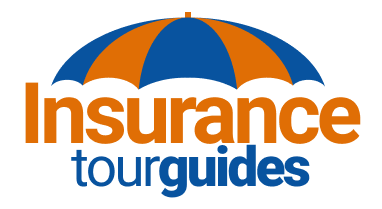Insurance might seem overwhelming at first, but understanding the basics can make it much simpler. At its core, insurance is a way to protect yourself, your loved ones, and your assets from unexpected financial losses. Discover how common types of insurance work and how they can bring peace of mind to your life.
What Is Insurance and How Does It Work?
Insurance is an agreement between you and an insurance company. You pay regular premiums, and in return, the company provides financial support in case of specific events, such as accidents, illnesses, or property damage. By pooling resources from many policyholders, insurers can cover large expenses when the unexpected happens.
The key purpose of insurance is risk management. It helps you avoid the financial strain of paying out-of-pocket for significant, unforeseen costs. Whether it’s a hospital bill, a car accident, or a natural disaster, insurance provides a safety net to keep your finances stable.
Common Types of Insurance
Here’s an overview of the most common types of insurance and what they protect:
Health Insurance
Health insurance covers medical expenses, from routine checkups to emergency surgeries. It helps reduce the financial burden of healthcare, which can be costly without coverage. Many employers offer group health insurance, but you can also purchase individual or family plans.
Auto Insurance
Auto insurance protects you financially if you’re involved in a car accident. Most policies include liability coverage (for damage or injury to others), collision coverage (for your vehicle’s repairs), and comprehensive coverage (for non-accident-related incidents like theft or weather damage).
Homeowners Insurance
Homeowners insurance covers your home and personal belongings in case of damage or loss due to events like fires, storms, or theft. It also includes liability coverage if someone is injured on your property. If you own a home, this type of insurance is essential for protecting your investment.
Renters Insurance
Renters insurance is for those who don’t own their home but want to protect their personal belongings. It also includes liability coverage for accidents that happen in your rental property. It’s an affordable way to safeguard your possessions.
Life Insurance
Life insurance provides financial support to your beneficiaries if you pass away. There are two main types: term life insurance (coverage for a specific period) and permanent life insurance (lifelong coverage that builds cash value). This type of insurance ensures your loved ones are cared for in your absence.
Disability Insurance
Disability insurance replaces a portion of your income if you’re unable to work due to injury or illness. It’s especially useful for those who rely heavily on their paycheck to cover living expenses.
Travel Insurance
Travel insurance protects against unexpected events during trips, such as trip cancellations, lost luggage, or medical emergencies abroad. If you travel frequently, this type of insurance can save you from costly disruptions.
Pet Insurance
Pet insurance helps cover veterinary expenses for your furry friends. It’s especially beneficial for unexpected health issues or injuries, which can be expensive without coverage.
Business Insurance
If you own a business, various types of insurance can protect your company. Common options include general liability, property insurance, and workers’ compensation. These policies safeguard your operations, assets, and employees.
How to Choose the Right Insurance
Choosing the right insurance depends on your lifestyle, financial situation, and specific needs. Here are some tips to help you make the best decision:
Evaluate Your Risks
Think about the potential risks you face. For instance, if you own a car, auto insurance is a must. If you have dependents, life insurance ensures their financial security.
Understand Policy Details
Read the fine print to understand what’s covered and what’s excluded. For example, some health insurance policies may not cover certain treatments, and homeowners insurance often excludes flood damage unless you purchase separate coverage.
Consider Your Budget
While insurance is essential, it’s important to balance coverage with affordability. Look for policies that provide adequate protection without stretching your budget too thin.
Shop Around
Compare quotes from multiple insurers to find the best rates and coverage options. Don’t be afraid to ask questions or seek advice from an insurance agent.
Update Your Coverage Regularly
As your life changes, so do your insurance needs. Review your policies periodically to ensure they align with your current situation, such as getting married, buying a home, or starting a family.
Why Insurance Is Worth It
Some people hesitate to buy insurance because they view it as an expense without immediate benefits. However, the financial protection it provides far outweighs the cost. Without insurance, you could face overwhelming expenses from unexpected events, such as a hospital stay or a major accident.
Insurance offers more than just financial security—it also provides peace of mind. Knowing you’re covered allows you to focus on living your life without constant worry about what might go wrong.
Final Insights
Understanding the basics of insurance is the first step toward securing your financial future. By knowing what types of coverage are available and how they work, you can make informed decisions that protect what matters most.
Consider exploring which policies fit your needs and take the next step toward building a solid foundation for your life.

